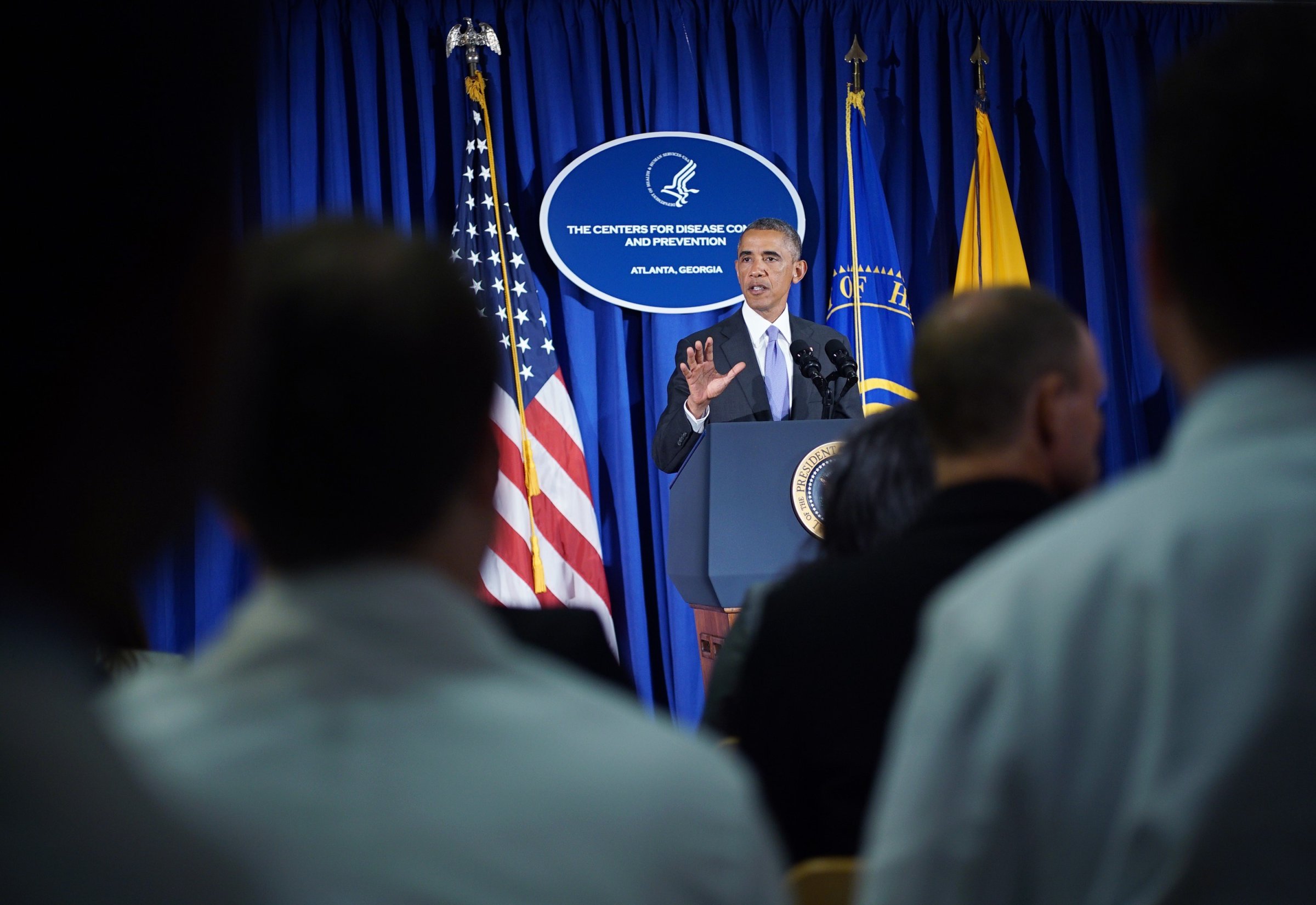
President Barack Obama confirmed the U.S.’s renewed and bolstered efforts to combat the Ebola outbreak in West Africa in a press conference Tuesday at the Centers for Disease Control and Prevention (CDC) in Atlanta.
The U.S. has committed to sending a deployment of 3,000 U.S. military forces and over $500 million in defense spending to West Africa, a response the President says is a national-security priority since the epidemic has “profound security implications.”
“Faced with this outbreak, the world is looking to us, the United States, and it’s a responsibility that we embrace,” said the President. “It’s a potential threat to global security if these countries break down, if their economies break down, if people panic. That has profound effects on all of us, even if we are not directly contracting the disease.”
Obama spent the day at the CDC headquarters to talk about the U.S. response — called Operation United Assistance — and to thank health care workers dealing with the outbreak. Before leaving Washington to travel down to Atlanta, Obama met with Ebola survivor Dr. Kent Brantly and his wife Amber. Brantly was in the nation’s capital to testify before Congress about the Ebola outbreak in West Africa. Brantly contracted Ebola while treating patients in Liberia as a missionary doctor for the organization Samaritan’s Purse. “[I am] grateful to [Dr. Brantly] and his family for the service he has rendered to people who are a lot less lucky than all of us,” Obama said Tuesday.
During his Atlanta trip, Obama also met the Emory University Hospital doctors who have been treating American patients with Ebola evacuated to the U.S.
The WHO has reported 4,963 cases of Ebola and 2,453 deaths in Guinea, Liberia and Sierra Leone. Obama says the U.S. has four central goals: to control the outbreak, address the ripple effect, coordinate a broader global response, and urgently build up a public-health system for the countries for the future. “This massive ramp-up of support from the United States is precisely the kind of transformational change we need to get a grip on the outbreak and begin to turn it around,” said Dr. Margaret Chan, the director general of the World Health Organization in a statement sent to media.
As part of the U.S. effort to combat the outbreak, Department of Defense personnel will offer training and epidemic logistics. At the request of the Liberian government, the U.S. will set up a military command center in Liberia, led by Major General Darryl Williams, commander of U.S. Army forces in Africa. The Pentagon is also poised to deliver 130,000 sets of personal protective equipment and thousands of kits that can be used for disease diagnostics. Africa Command engineers will be constructing several additional treatment facilities and more than 1,000 beds, and will train up to 500 health care workers a week. In his press conference, Obama reiterated that the threat of Ebola spread in the U.S. is extremely low.
“The reality is that this epidemic is going to get worse before it gets better,” concluded Obama. “The United States of America intends to do more … We’re going to continue to make sure that the world understands the need for them to step alongside us.”
More Must-Reads from TIME
- Donald Trump Is TIME's 2024 Person of the Year
- Why We Chose Trump as Person of the Year
- Is Intermittent Fasting Good or Bad for You?
- The 100 Must-Read Books of 2024
- The 20 Best Christmas TV Episodes
- Column: If Optimism Feels Ridiculous Now, Try Hope
- The Future of Climate Action Is Trade Policy
- Merle Bombardieri Is Helping People Make the Baby Decision
Write to Justin Worland at justin.worland@time.com